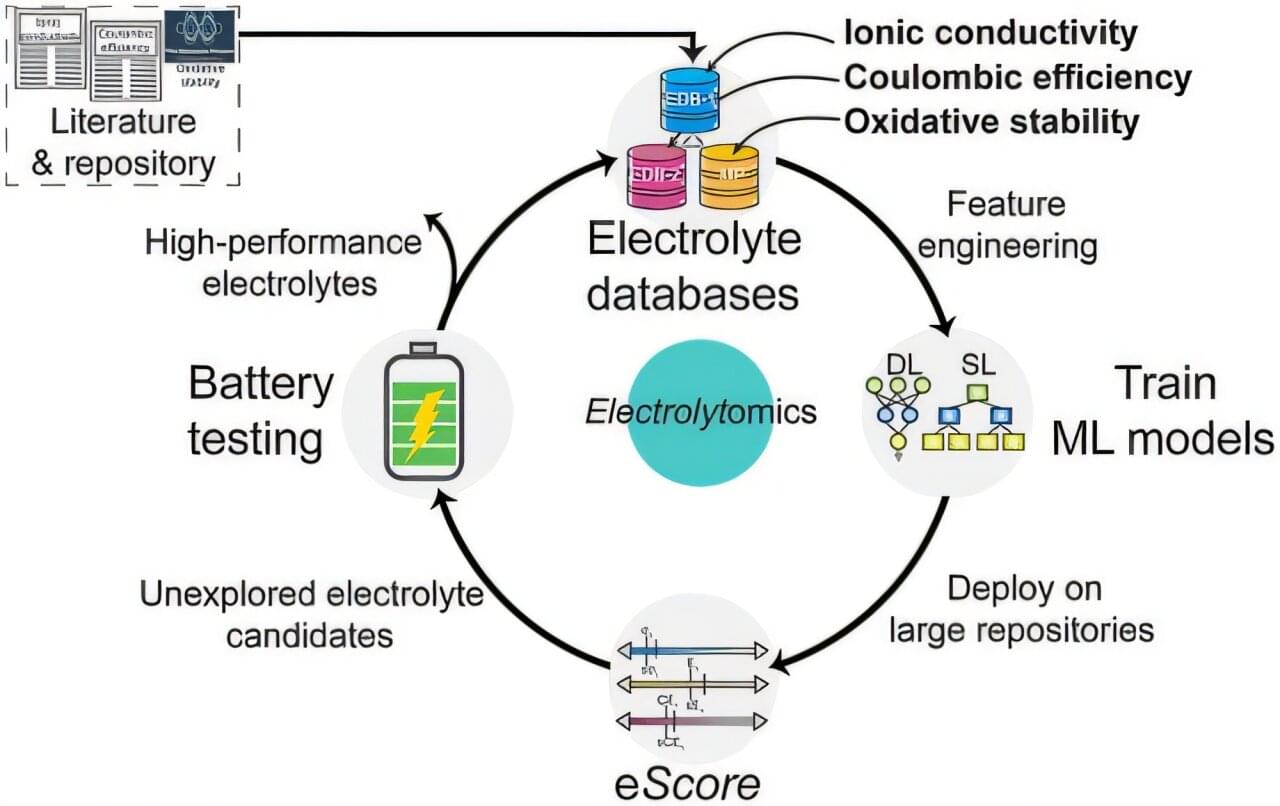Discovering new, powerful electrolytes is one of the major bottlenecks in designing next-generation batteries for electric vehicles, phones, laptops and grid-scale energy storage.
The most stable electrolytes are not always the most conductive. The most efficient batteries are not always the most stable. And so on.
“The electrodes have to satisfy very different properties at the same time. They always conflict with each other,” said Ritesh Kumar, an Eric and Wendy Schimdt AI in Science Postdoctoral Fellow working in the Amanchukwu Lab at the University of Chicago Pritzker School of Molecular Engineering (UChicago PME).
